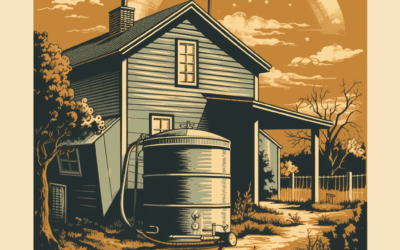Why don’t homes in some areas not have basements, and other places do?
Have you ever wondered why some houses have basements while others don’t? It turns out that the presence or absence of basements depends on a variety of factors, including the geography and the type of soil in an area. Let’s explore this interesting topic together!
The Role of Geography
The first thing to consider is geography. Different areas around the world have different natural features, like mountains, hills, and water bodies. The type of land in a certain place greatly affects whether homes there have basements or not.
In places with hilly or mountainous terrain, it’s more common to find houses with basements. This is because when the land slopes, builders can dig into the ground and create a space that becomes a basement. Since a part of the home is already below the ground level, it’s easier to create a basement in these areas.
On the other hand, in flat areas like plains or coastal regions, you’ll often find homes without basements. This is because builders don’t have the advantage of the natural slope, making it more difficult and expensive to dig down and create a basement.
The Importance of Soil
The type of soil also plays a crucial role in determining whether homes have basements. Different soils have different properties, such as how easily they can be dug into or how well they can support a structure.
In areas with rocky or dense soil, it is more challenging to dig deep into the ground. Builders may face obstacles like hard rocks, making it difficult to create a basement. Similarly, if the soil is not stable or prone to shifting, it can also pose a risk to the foundations of a home.
In contrast, areas with softer or sandy soil are more suitable for building homes with basements. These types of soils are easier to dig into, making it more feasible to create underground spaces. Additionally, sandy soil tends to be more stable, providing a safer base for the basement and the rest of the house.
Weather and Climate
Weather and climate conditions also influence whether basements are common in a particular region. Places with extreme weather, such as very cold winters, may have more homes with basements. Why? Well, basements can act as an extra layer of insulation, helping to keep the house warmer during the colder months.
In areas prone to hurricanes or tornadoes, on the other hand, you might find fewer homes with basements. That’s because basements can be at risk of flooding and are not always the safest place to seek shelter during a storm. Instead, these areas may have specialized storm shelters or safe rooms designed to protect people during severe weather events.
The Benefits of Basements
Now that we understand why homes in some areas don’t have basements, let’s explore why basements can be great additions to houses:
- Extra Space: Basements provide additional usable space for activities like storage, playrooms, or even creating an extra bedroom.
- Utility Rooms: Basements often house important systems for the home, like water heaters, furnaces, and laundry facilities.
- Privacy: Basements can be a quiet retreat, away from the noise of the main living area.
- Protection: In certain areas prone to natural disasters, basements can offer a safe place during emergencies.
Remember, the absence of a basement doesn’t mean a home is any less valuable or functional. Many homes without basements still provide comfortable living spaces and have other features that compensate for the lack of an underground area.
Wrap Up
So there you have it! The presence or absence of basements in homes depends on geography, soil type, and local climate. While some areas have basements due to land slopes and suitable soil, others may not have them because of flat terrain, difficult soil conditions, or even certain weather patterns. So, the next time you spot a home without a basement, you’ll know the reasons behind it!












